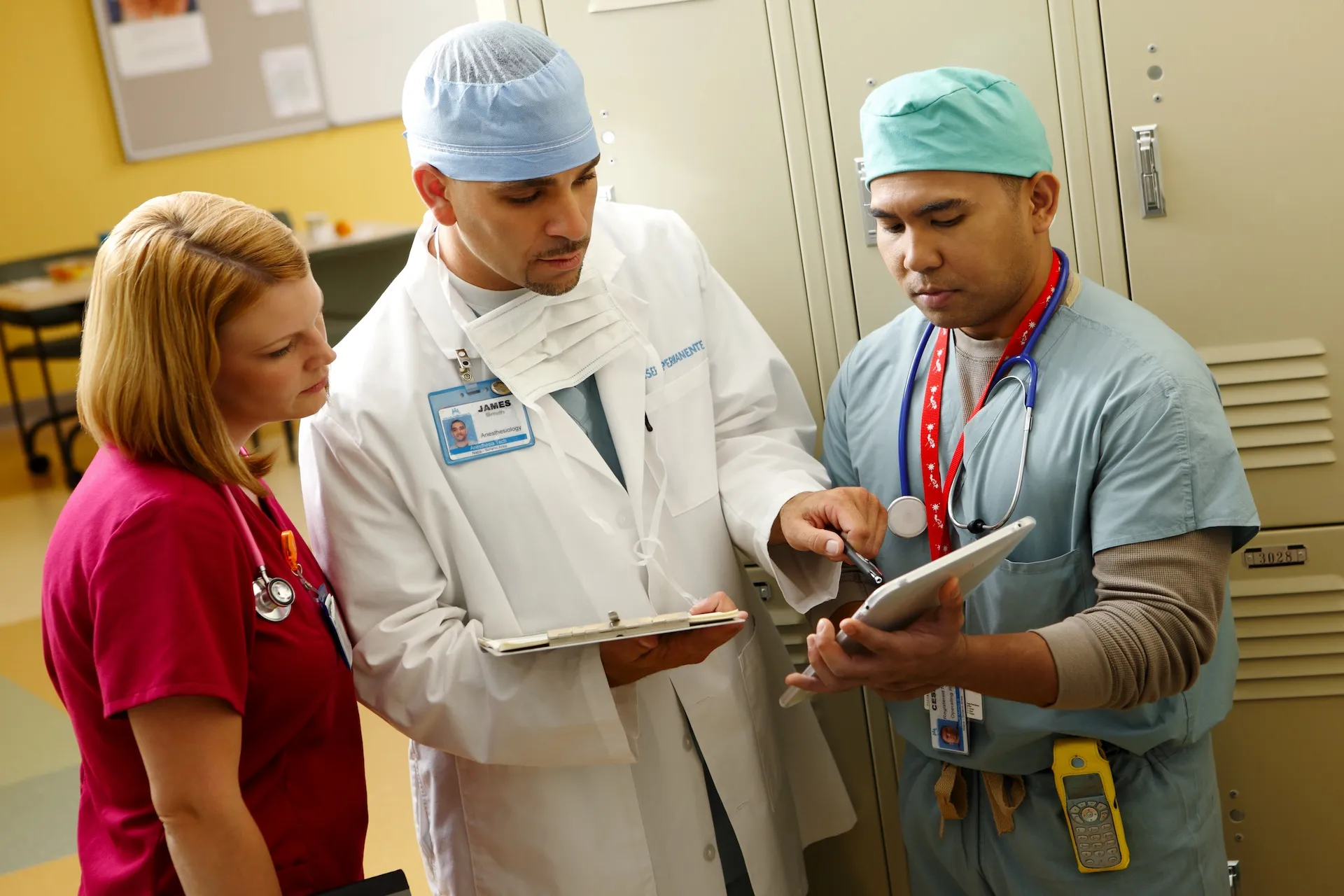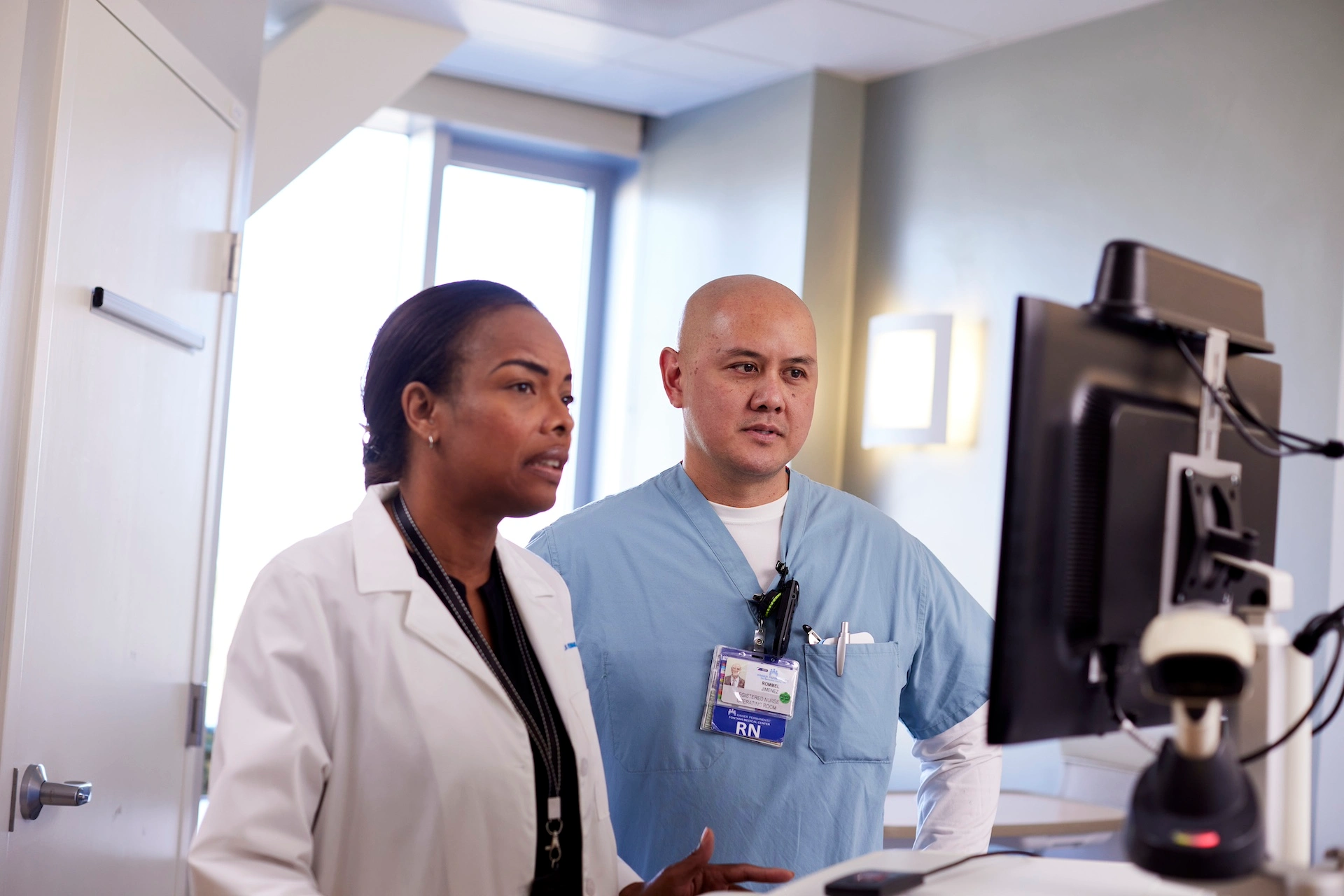5 organizations receive funding to rigorously evaluate AI that improves patient care
The Kaiser Permanente Augmented Intelligence in Medicine and Healthcare Initiative (AIM-HI) Coordinating Center announced that it has awarded 5 health care organizations with funding to pursue research projects deploying artificial intelligence (AI) and machine learning (ML) algorithms to enhance diagnostic decision-making in health care.

AIM-HI, which is housed in the Kaiser Permanente Northern California Division of Research (DOR), is leading a national research effort focused on rigorously evaluating the implementation of AI and machine learning algorithms in health care. Awardees receive grants of up to $750,000, supported through funds from the Gordon and Betty Moore Foundation, to demonstrate the value of these technologies in diverse, real-world settings.
The AIM-HI program received more than 120 applications spanning a broad range of AI and ML applications in health care including predictive models, computer vision, and large language models. As the sponsor of this initiative, Kaiser Permanente was not eligible for funding.
“Given the tremendous excitement about AI and ML to improve patient care and outcomes, I was not surprised to see vigorous interest in AIM-HI,” said Vincent Liu, MD, principal investigator of AIM-HI, a DOR research scientist, and intensivist physician with The Permanente Medical Group. “Choosing from among a large number of innovative and impactful projects was really challenging. Ultimately, we selected a balanced portfolio that addresses real-world challenges across diverse technologies, health care settings, and patient groups.”
The grant recipients are:
- Cesar Termulo, Jr., MD; Parkland Health, Dallas
- Generalizing an AI/ML Model for Pediatric Asthma Care in Safety Net Health Settings
- David Ouyang, MD; The Smidt Heart Institute at Cedars-Sinai Medical Center, Los Angeles
- High Throughput Precision Identification of Cardiac Amyloidosis in a Diverse Population
- Sivasubramanium Bhavani, MD, MS; Emory University, Atlanta
- Precision Resuscitation with Crystalloids in Sepsis (the PRECISE trial)
- Fatima Munoz, MD, MPH; Centro de Salud de la Comunidad de San Ysidro, Inc. dba: San Ysidro Health, San Diego
- Diabetic Retinopathy Screening Point-of-Care Artificial Intelligence
- Peter J. Embí, MD, MS; Vanderbilt University Medical Center, Nashville
- Advancing Novel Approaches and Best Practices for Effective AI-Enabled Diagnosis using Randomized Trials, Algorithmovigilance, and Proactive Risk Assessment
The grants cover a 3-year project period, during which the AIM-HI Coordinating Center and AIM-HI Advisory Committee will provide support to grantees. Support includes sharing best practices, disseminating lessons learned, and advancing the use of AI and ML in health care.


“These impressive and diverse projects are at the forefront of AI innovation and effective deployment,” noted Stephen M. Parodi, MD, executive vice president, The Permanente Federation and The Permanente Medical Group. “All 5 hold promise to improve medicine’s capability to bring these cutting-edge technologies to responsibly improve patient outcomes.”
Maria Ansari, MD, FACC, CEO and executive director, The Permanente Medical Group, shares the enthusiasm for AI in medicine. “The AIM-HI effort reflects the long history of data-driven approaches to patient care that Kaiser Permanente has pioneered for decades,” she said. “Supporting other health care organizations as they assess AI and ML algorithms in each of their unique health care settings is a fulfillment of our vision and commitment to clinicians, patients, and communities.”
# # #
About the Kaiser Permanente Division of Research
The Kaiser Permanente Division of Research conducts, publishes and disseminates epidemiologic and health services research to improve the health and medical care of Kaiser Permanente members and society at large. It seeks to understand the determinants of illness and well-being, and to improve the quality and cost-effectiveness of health care. Currently, DOR’s 600-plus staff is working on more than 450 epidemiological and health services research projects. For more information, visit divisionofresearch.kaiserpermanente.org or follow us @KPDOR.





This Post Has 0 Comments